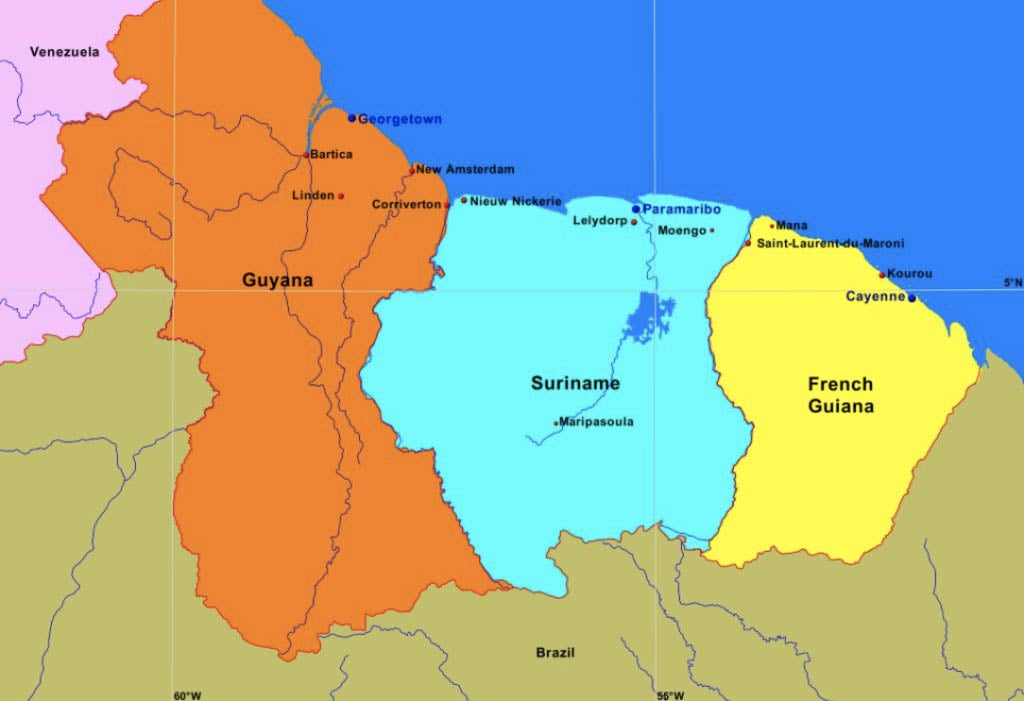Given the level of prominence afforded what President Irfaan Ali had to say at last Saturday’s virtual diaspora engagement, it is difficult to dispel the view that his administration may be moving in the direction of taking more seriously, the contribution that overseas-based Guyanese can play in the country’s development, going forward.
One can, at this stage, however, hardly be sure as to just how far this encounter will go given the fact that there is nothing new in the political noises ventilating the relevance of Guyanese residing in the diaspora to the future of the country, that the country’s leaders have been making for many years. Truth be told, there has been far from sufficient follow-up action that has followed the numerous official promises to make life easier for overseas-based Guyanese indicating a preparedness to return home and, better still, to invest in local businesses.
Whereas, not too many years ago, the links between overseas-based Guyanese and their homeland were confined largely to the remittances sent to families at home, the dynamic has shifted somewhat since the country’s oil finds, beginning in 2015. ‘Marketing’ Guyana abroad these days has become less onerous, the present drawing card being the portents attached to our new-found status as an oil-producing country. This is not to say that Guyanese abroad are not, in some measure, wary of what, sometimes, can be an incendiary political culture; the prospects offered by the country’s anticipated oil wealth, however, have been sufficient to raise interest levels among those who may have long been seeking good reason to return.
Guyana’s international promotion associated with its huge successive oil finds has far surpassed the various other state-driven initiatives designed to draw the attention of overseas businesses and Guyanese residing abroad to the country’s potential as a business haven.
Whether there has, as yet, occurred a transformation from the historic bureaucratic hurdles that sometimes appear to have dimmed the enthusiasm of Guyanese in the diaspora as well as overseas businesses interested in seriously probing the country’s investment potential is still unclear, the persistent noises to the effect that the country remains ‘open for business,’ notwithstanding.
Still, the advent of oil and gas remains the potential game-changer. Guyana, these days, ranks among the most talked-about countries in the hemisphere, the chatter extending from potential investors keen to secure a piece of the investment spinoff from the country’s oil wealth to overseas-based Guyanese wishing to retire in comfort.
It is oil and gas, other than any concerted official effort to market Guyana abroad, which continues to be the potential game-changer insofar as the country’s international profile is concerned.
At the virtual forum on Saturday, President Ali sought to offer a group of Guyanese from the diaspora glimpses into his administration’s thinking on taking the country forward.
These days, the country’s oil and gas resources are, understandably, never far away from discussions on the country’s development. These were again at the centre of last week’s discourse, some of the details of which were published earlier this week by the state-run Department of Public Information (DPI).
President Ali’s administration, he says, envisages the creation of an energy corridor embracing Guyana, Suriname and Brazil. The arrangement, he is quoted as saying in the DPI story, will make Guyana “a major player in the energy corridor of Brazil, Guyana and Suriname,” an ambition which, if it is to be realised, will require much more than the country’s now proven and abundant oil and gas resources”.
The project, according to the DPI’s account of the engagement, hinges on Guyana’s gas resources, seen as the main consideration driving the proposed South American corridor. That apart, the DPI’s account of the President’s engagement with the diaspora representatives discloses that “Guyana intends to pipe gas to shore from the Liza field to substitute its current oil-fired power generation.”
According to the DPI account, the virtual forum also allowed for the diaspora group to become privy to government’s plans “for renewable energy projects to support its intention of creating a cleaner energy mix.” The envisaged energy corridor, the DPI says, will “see the countries teaming up to share power based on a collective understanding of their needs and ability to supply.”
There is more, it seems, that President Ali envisages from the proposed energy-driven South American cooperation initiative. While he reportedly cautioned that, from Guyana’s standpoint, the operationalisation of the proposal would require the development of local knowledge and capacity in the area of logistics, the President is quoted by the DPI as saying that “our own demand locally and the spinoff of our own investment that will see more export, would require greater logistics planning.” He also sees the collaborative initiative involving Suriname and Brazil as a precursor to the creation of a new corridor that would make Guyana “an important shipping hub for the region,” though he reportedly cautioned that the realisation of such an ambition would require “careful planning and development of a logistics hub and industry.”
And while such unrealised commitments are not unfamiliar to promises made by government over time, President Ali is also on record as saying that his administration expects to engage official delegations from Suriname and Brazil with a view to pursuing more involved discussions on the proposed energy corridor.



